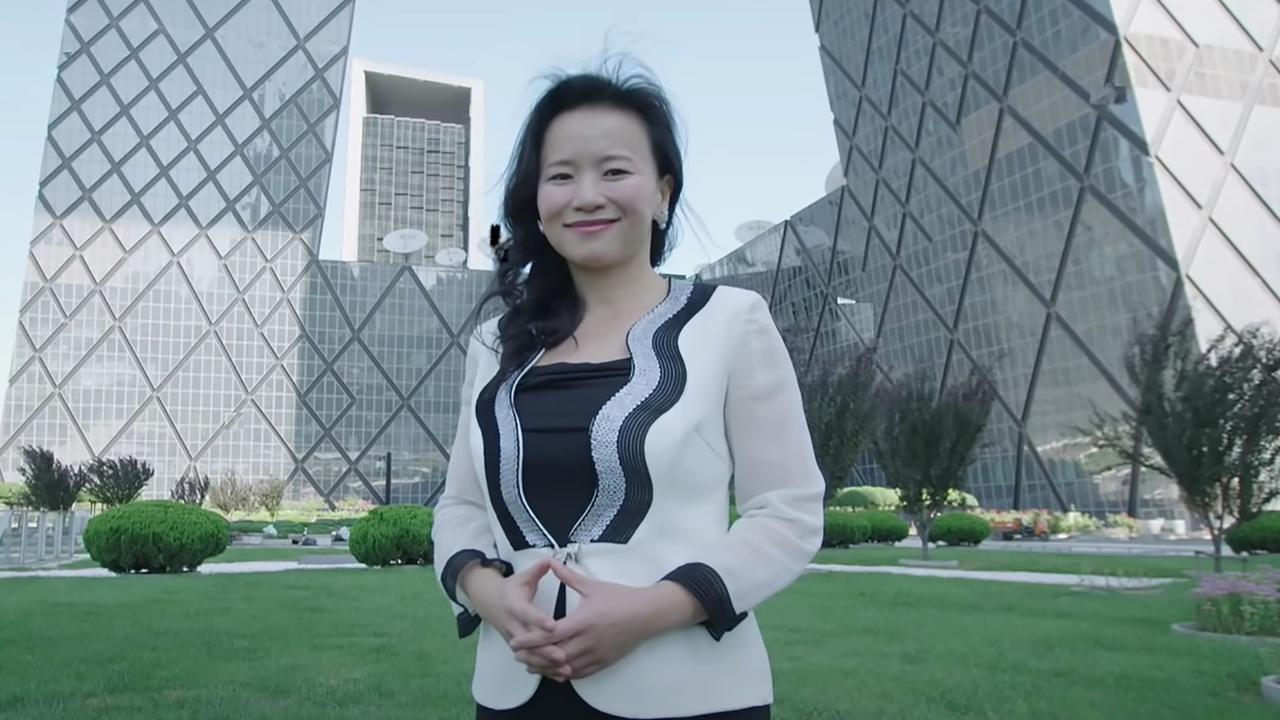China charges former Qlder with supplying state secrets
A former UQ student and journalist faces a lengthy prison sentence after being charged in China with spying.
QLD Politics
Don't miss out on the headlines from QLD Politics. Followed categories will be added to My News.
“Ominous” spying charges levelled against former Queenslander and journalist Cheng Lei could see her facing lengthy prison sentences, with experts warning the “opaque Chinese legal system” means Beijing can “do what it likes”.
Australian citizen Cheng Lei, who studied commerce at UQ, has been charged for allegedly “illegally supplying state secrets overseas” after being detained for six months without charge.
The charge comes under China’s controversial national security laws.
Lowy Institute senior fellow Richard McGregor said it was still unclear what state secrets she was alleged to have disclosed.
“In China, almost anything can be classified as a state secret, which makes it an offence that the state can do what it likes with,” he said.
“In that respect, the charges hanging over her head are ominous.”
He said while the news would be devastating for Cheng’s family, it was not surprising.
“Chinese law allows someone to be held for six months before they are charged, and we have reached that limit,” Mr McGregor said.
Australian Strategic Policy Institute national security director Michael Shoebridge said her arrest was an example of the opaque Chinese legal system.
“It’s hard to imagine a State TV newsreader like Ms Lei would possess any state secrets and so be in a position to commit the offences Chinese authorities claim,” Mr Shoebridge said.
“Her arrest and any further moves to actually prosecute her will only highlight the rising risks for any foreigners living in, working in or even visiting China on business.”
He said it was clear foreigners faced a heightened risk of arrest in China, and undercut Beijing’s claims it was opening up to international investment and partnerships.
“As Beijing considers how to proceed with her case, it needs to factor in this reputational damage,” Mr Shoebridge said.

Foreigners detained or charged on state security offences can be held for months or years without conviction, with convictions for state security offences carrying sentences of 10 years or more, Mr Shoebridge said.
Deportation has also been an option in the past.
Cheng was first detained in Beijing last August.
Her arrest came just weeks after Australia issuing a warning that Australians could be detained without reason on national security grounds, as tensions rose between the countries.
Foreign Affairs Minister Marise Payne said Chinese authorities had advised Australia of the development, which happened last Friday.
“Chinese authorities have advised that Ms Cheng was arrested on suspicion of illegally supplying state secrets overseas,” she said.
“The Australian Government has raised its serious concerns about Ms Cheng’s detention regularly at senior levels, including about her welfare and conditions of detention.”
She said Australian embassy officials had been able to visit Cheng six times since her detention, with the most recent time on January 27.
“We expect basic standards of justice, procedural fairness and humane treatment to be met, in accordance with international norms,” Senator Payne said.
“Our thoughts are with Ms Cheng and her family during this difficult period.”
Cheng, 45, was an anchor on the state-owned China Global Television Network in Beijing, which has since taken down her profile from its website.
The mother of two had studied Commerce at the University of Queensland, graduating in 1995.
While not overtly critical of the CCP, Cheng often questioned the state media and government’s handling of the pandemic in social media posts.
On July 8, Department of Foreign Affairs and Trade have said foreigners in China had been detained on “national security” grounds and warned Australians could be detained without reason.
The warning had some China security experts in Australia suggest the warning was due to increased concerns of “hostage diplomacy”.






